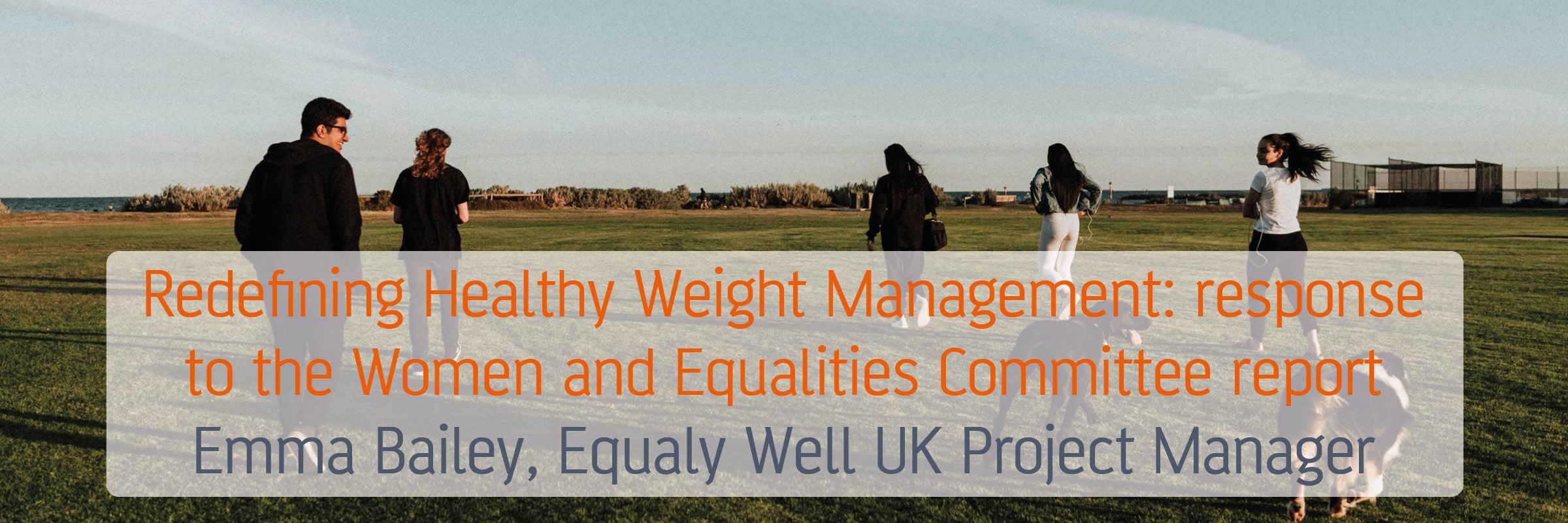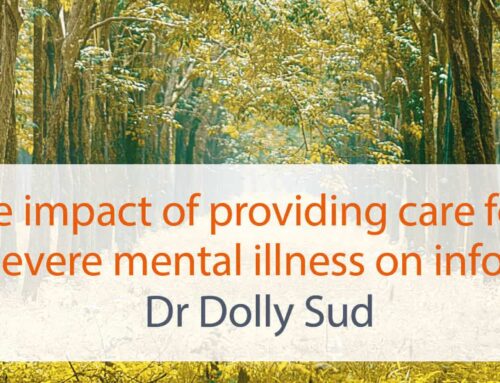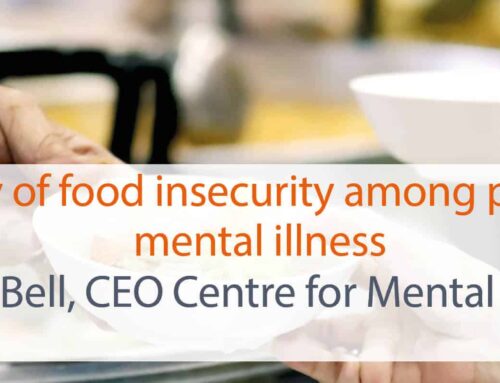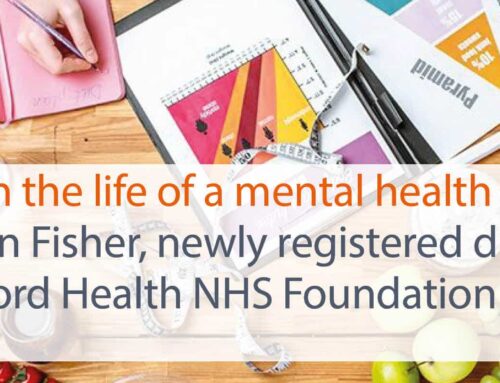
Emma Bailey, Project Manager for Equally Well UK at Centre for Mental Health
Healthy Weight Management has been at the heart of Equally Well since the start and a topic we have often heard from Expert by Experience members about, as well as others driving change in this area. We welcomed the report launched on Friday from the House of Commons Women and Equalities Committee, Changing the perfect picture: an inquiry into body image.
When we first started to work on Healthy Weight Management, Hannah Lewis (who previously worked for Rethink and led the Expert by Experience group) raised her concerns around BMI as an inclusive indicator for health. We have often heard from people who have mental health difficulties that additional weight-based shaming and guilt is more of a hindrance than a help. We have also heard from our Expert by Experience members that they have avoided health care professionals due to weight stigma, which has overshadowed their other health needs. The report More than a Number highlighted how solely focusing on BMI measures can be unhelpful, and we support the notion that more inclusive health indicators should be used in practice instead of using BMI. We welcome the move towards a Health At Every Size approach which could help to close the gap of physical health inequalities among people with a diagnosis of severe mental illness by focusing on people’s physical health symptoms rather than their body shape or size. By creating a positive focus on healthy weight management, it cuts out the negativity and stigma which can also lead to people avoiding health care professionals and will instead help people to feel more positive about themselves.
It is promising to see that the report highlights the role of weight-based stigma and discrimination, as well as proposing steps to offer protection for people under the Equality Act 2010. This could prevent people with pre-existing mental health difficulties being subjected to diagnostic overshadowing (having physical health symptoms overlooked) when visiting their health care provider.
We also welcomed the comments and concerns about the Government’s obesity strategy, having responded to the strategy with similar concerns. We were pleased to see the recommendation that Government should discontinue plans to include calorie information on menus, as this could both exacerbate eating disorders and might also impact on others who don’t yet have an eating disorder. We hope that the Government takes this recommendation on board and cancels the plans, as well as heeding the report’s recommendation to review the strategy again.
Healthy Weight Management is a complex topic. We need more funding for services and training for medical professionals to prevent having a one size fits all approach. People with a diagnosis of severe mental illness need to have a choice on what medications they are given, and have an understanding that some medications might have a side effect of weight gain. There needs to be more early intervention for people with a diagnosis of severe mental illness, especially when they first start to take medication that might cause weight gain.
Often, weight management among people with a diagnosis of severe mental illness is seen as a separate issue. However, from speaking with the Equally Well UK expert by experience group, we know that disordered eating and clinical eating disorders often co-occur. We welcomed the recommendations in the report to have more ringfenced funding for eating disorder research. However, we would also like to see more funding for early intervention and to make sure that experts in their experience are included in all planning and decisions. We also need to ensure that no one with an eating disorder is turned away as we hear too often about being being told they don’t meet the BMI threshold for support. This is why we are firm supporters of Hope Virgo’s Dump the Scales campaign.
Hope Virgo and Hannah Lewis have shared the following responses to the report:
Hope Virgo, author and campaigner said:
“I really welcome the recommendations and specifically about scrapping BMI. Right now we are basing a person’s eating disorder on BMI and turning people away from services because they don’t fit neatly into a bracket. This is harming individuals, causing people not to come forward and fuelling this stereotype that to have an eating disorder you must be underweight. But not only for people with eating disorders but more broadly in society, we are judging the health of a person on their BMI which is unhelpful and not accurate. It fuels stigma, doesn’t look at the whole person and often means we miss out on diagnosing other health issues. The report is a good step forward. But it is not happening fast enough. Reports are great at showing a picture but with eating disorders increasing as much as they have over Covid-19, we need to tackle this as a matter of urgency”
Hannah Lewis, PhD researcher studying body image and eating disorder prevention and Equally Well ambassador said:
“We hear from people with pre-existing mental health difficulties that the focus on BMI measures and weight loss can often do more harm than good. Often people enter services with one mental health diagnosis, and then go on to develop disordered eating or a clinical eating disorder because of the encouragement to diet or join commercial weight loss programmes. This – compounded with anti-obesity campaigns – can lead to extreme dieting behaviours. We know that dieting behaviours often only have short-term effects, leading to people experiencing extreme weight fluctuation which can be more damaging and distressing for the person.”
We still have a long way to go with Healthy Weight Management and providing the right support and care, but are delighted to have a growing membership of organisations who are all working on closing the early mortality gap and improving the lives of people with a diagnosis of severe mental illness.
This is an issue that goes way beyond just the vaccine. It goes back to the core of the issue, those foundations that create and perpetuate the myths about eating disorders.
Our blogs share the experience and views of the authors; these views are not necessarily those of Equally Well UK






